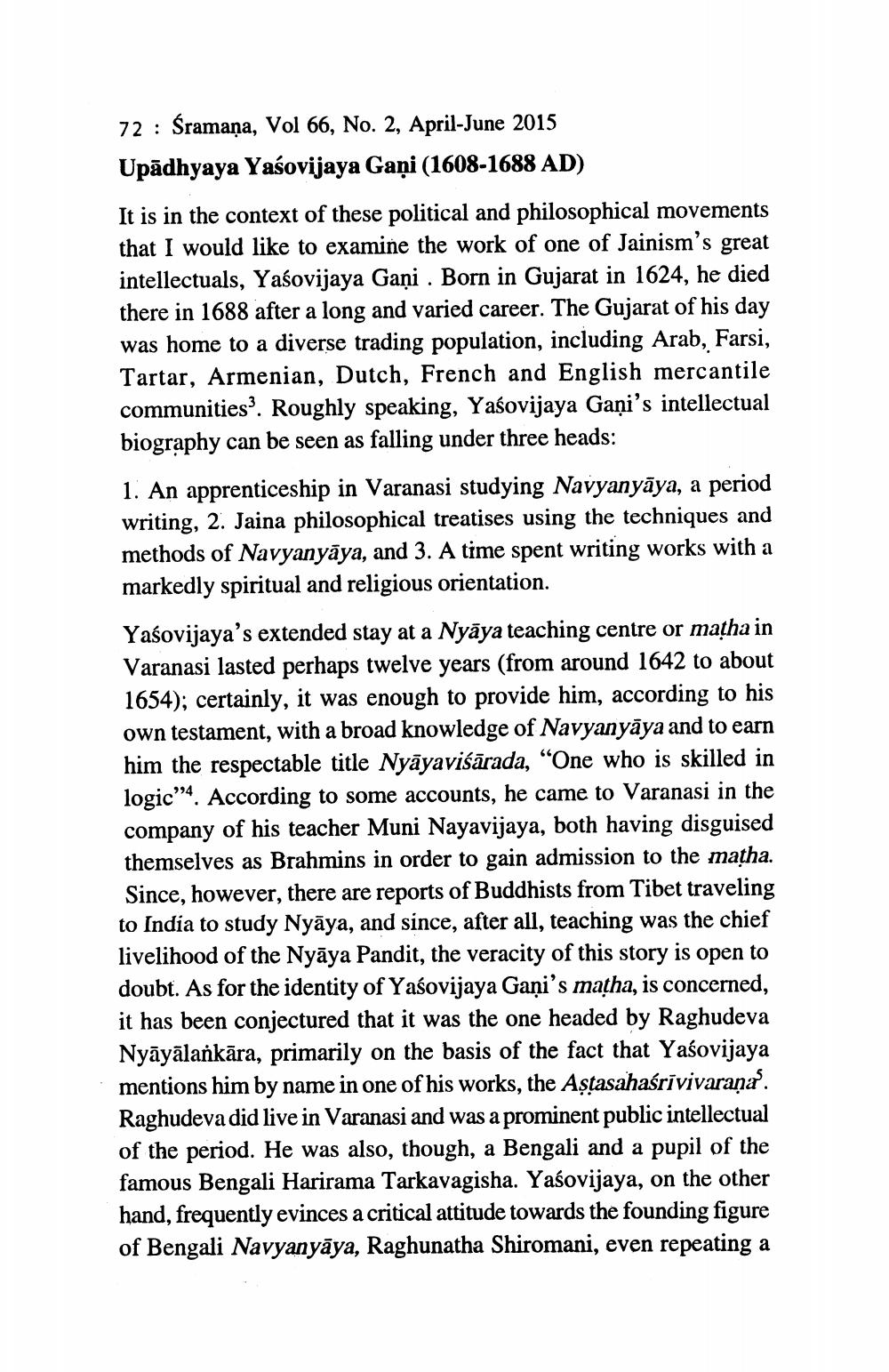________________
72 : Śramaņa, Vol 66, No. 2, April-June 2015 Upādhyaya Yasovijaya Gaņi (1608-1688 AD)
It is in the context of these political and philosophical movements that I would like to examine the work of one of Jainism's great intellectuals, Yaśovijaya Gaņi . Born in Gujarat in 1624, he died there in 1688 after a long and varied career. The Gujarat of his day was home to a diverse trading population, including Arab, Farsi, Tartar, Armenian, Dutch, French and English mercantile communities. Roughly speaking, Yaśovijaya Gaņi's intellectual biography can be seen as falling under three heads: 1. An apprenticeship in Varanasi studying Navyanyāya, a period writing, 2. Jaina philosophical treatises using the techniques and methods of Navyanyāya, and 3. A time spent writing works with a markedly spiritual and religious orientation. Yaśovijaya's extended stay at a Nyāya teaching centre or matha in Varanasi lasted perhaps twelve years (from around 1642 to about 1654); certainly, it was enough to provide him, according to his own testament, with a broad knowledge of Navyanyāya and to earn him the respectable title Nyāyaviśārada, “One who is skilled in logic”4. According to some accounts, he came to Varanasi in the company of his teacher Muni Nayavijaya, both having disguised themselves as Brahmins in order to gain admission to the matha. Since, however, there are reports of Buddhists from Tibet traveling to India to study Nyāya, and since, after all, teaching was the chief livelihood of the Nyāya Pandit, the veracity of this story is open to doubt. As for the identity of Yaśovijaya Gani's matha, is concerned, it has been conjectured that it was the one headed by Raghudeva Nyāyālaňkāra, primarily on the basis of the fact that Yaśovijaya mentions him by name in one of his works, the Aștasahaśrīvivarana'. Raghudeva did live in Varanasi and was a prominent public intellectual of the period. He was also, though, a Bengali and a pupil of the famous Bengali Harirama Tarkavagisha. Yaśovijaya, on the other hand, frequently evinces a critical attitude towards the founding figure of Bengali Navyanyāya, Raghunatha Shiromani, even repeating a




